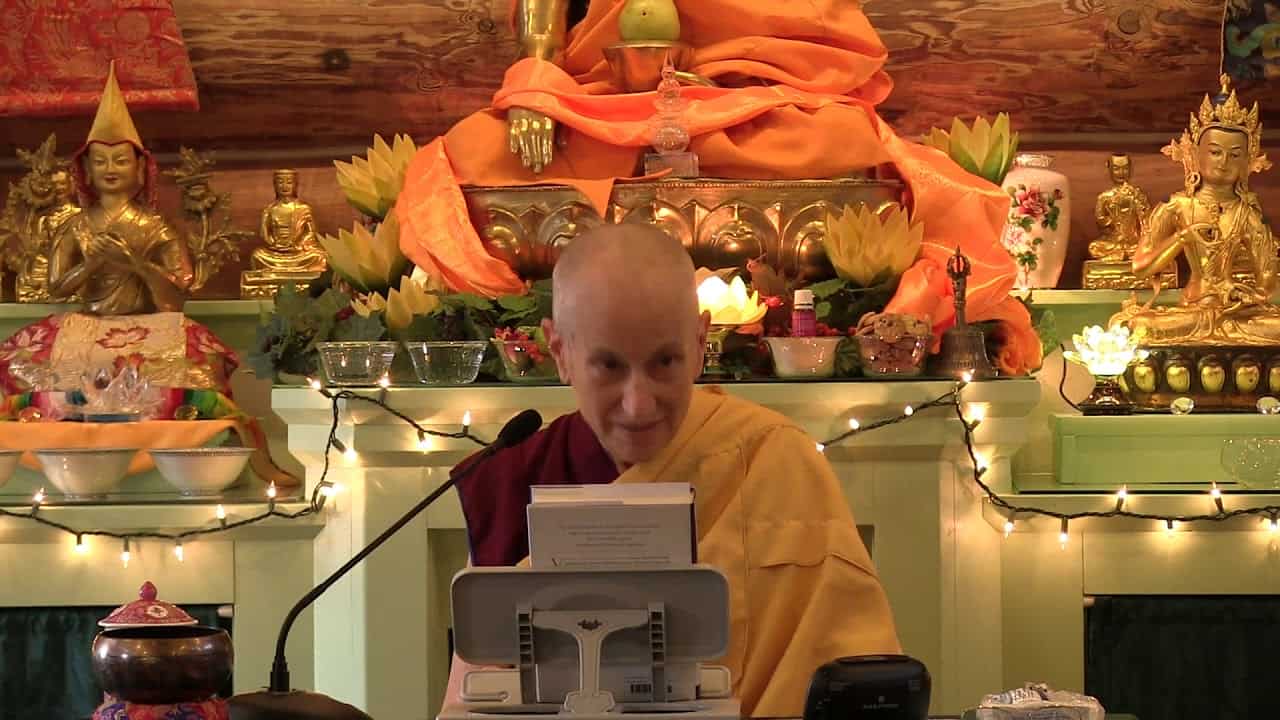Reliable cognizers and syllogisms
06 Foundation of Buddhist Practice
Part of a series of teachings given during a retreat based on the book The Foundation of Buddhist Practice given at Sravasti Abbey.
- Questions and answers
- What it means to “mean well”
- Emptiness and the mind
- Types of awarenesses
- Direct reliable cognizers
- Inferential reliable cognizers
- Understanding syllogisms
The Foundation of Buddhist Practice 06: Reliable cognizers and syllogisms (download)
Contemplation points
- What are some things that society tells us (the philosophies we believe in) that, from a Buddhist perspective, are contrary to our well-being? Consider how easy these are to follow when society as a whole supports them. Does this help you generate compassion for those who commit harm in the world under the ignorance of wrong beliefs?
- Take an example of something you’re learning and look at all the different cognizers involved. Repeat this exercise with a variety of different things you have studied, or are studying, to deepen your awareness of the types of cognizers.
- Consider why having reliable cognizers is important in your daily life and in your spiritual life.
- Make examples of times when you have had an inattentive awareness or deluded doubt. How did they inhibit your full knowledge?
- Make examples of wrong awarenesses, such as seeing things incorrectly or misunderstanding the meaning of what someone said. Have you ever had a wrong awareness but not known it was incorrect until sometime later?
- Make an example of how your understanding of a topic began as a wrong consciousness or doubt and slowly evolved to a correct assumption and then to an inferential cognizer or direct perceiver.
- Practice working with syllogisms: Create some syllogisms based on the formula presented (with a subject, predicate, reason, and example). Check them against the three criteria. Are your syllogisms formed correctly? Do they prove their thesis? Create both valid and invalid syllogisms to get a feel for the process of proving/disproving them.
- Validating or invalidating a syllogism can be life changing! How might you go about making syllogisms (such as the ones discussed in the teaching) more than simply an intellectual exercise? Why is this exercise important to Dharma practice?
Venerable Thubten Chodron
Venerable Chodron emphasizes the practical application of Buddha’s teachings in our daily lives and is especially skilled at explaining them in ways easily understood and practiced by Westerners. She is well known for her warm, humorous, and lucid teachings. She was ordained as a Buddhist nun in 1977 by Kyabje Ling Rinpoche in Dharamsala, India, and in 1986 she received bhikshuni (full) ordination in Taiwan. Read her full bio.


